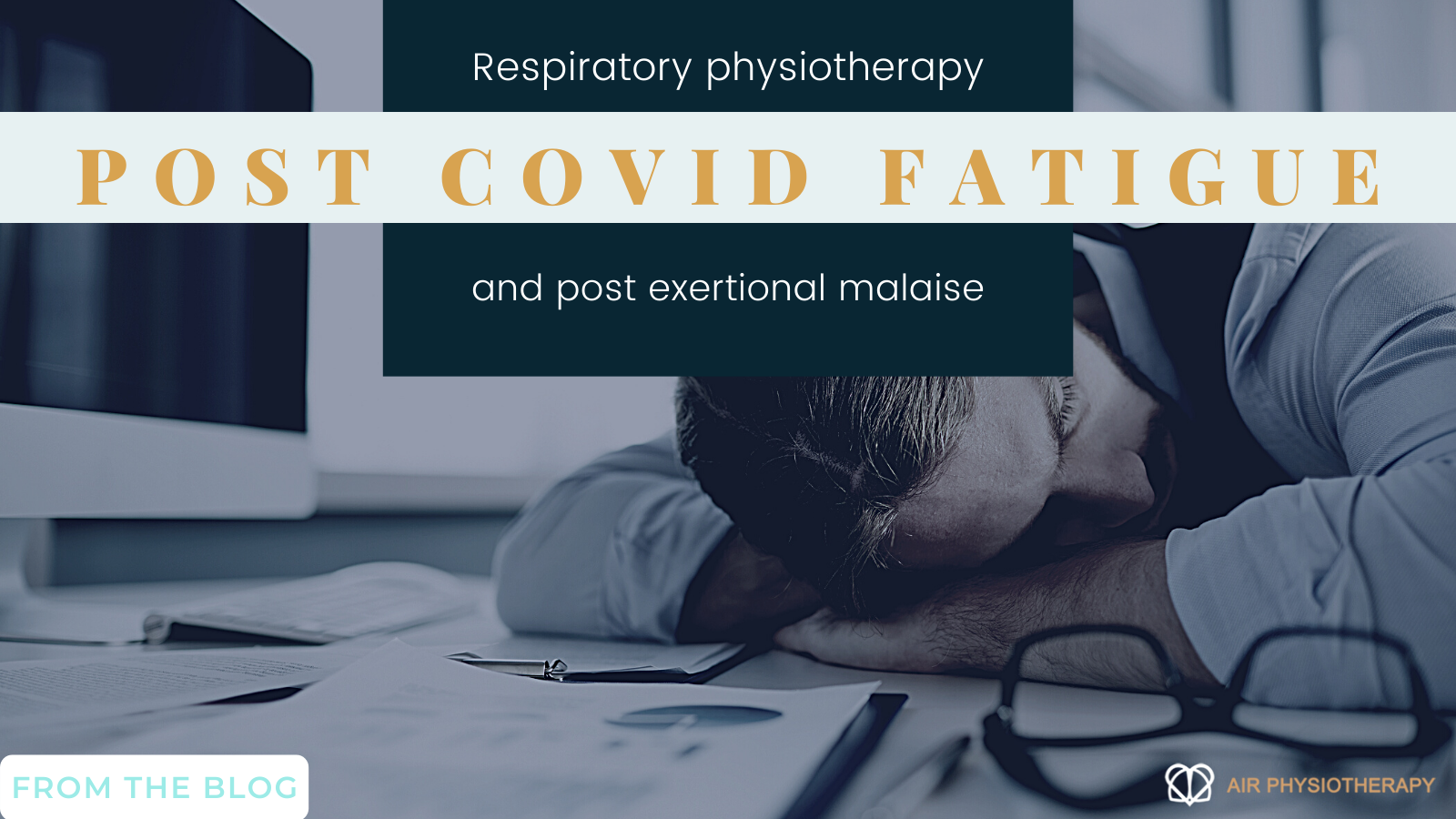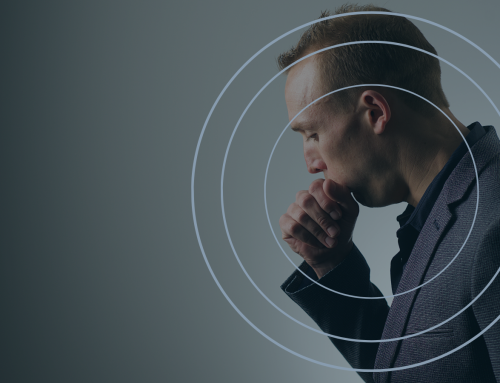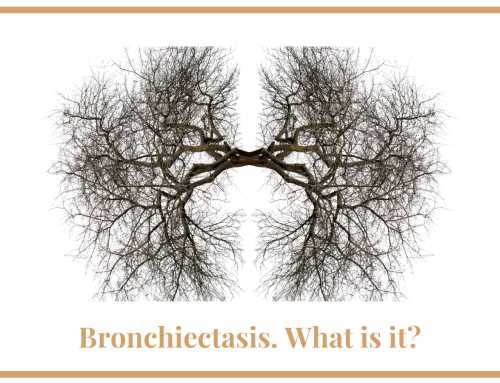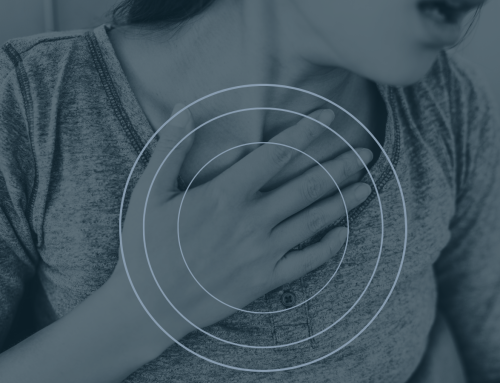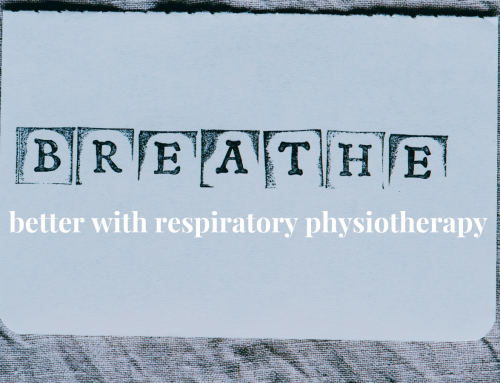Mounting evidence suggests that large numbers of people recovering from COVID-19 go on to suffer from long covid, and we’re certainly seeing that here at Air Physiotherapy in the patients we’re treating. The most commonly reported symptoms of long-COVID are fatigue, cognitive impairment, and post exertional malaise (worsening of symptoms after minor physical or mental exertion).
We’d like to take some time to focus on post-exertional malaise (PEM) – what it is, why it happens and how respiratory physiotherapy can help.
What is PEM?
Post-exertional malaise (PEM) is described as the worsening of symptoms following even minor physical or mental exertion. These symptoms typically worsen 12 to 48 hours after activity and this can last for days or even weeks.
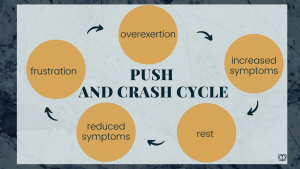
In aerobic, or “with oxygen” exercise, your muscles have enough oxygen to produce the energy needed to perform. When you don’t have enough oxygen, your body naturally switches over to anaerobic exercise, where it draws on your energy levels to continue. But when your energy levels aren’t sufficient to provide this, this leads to an out-of-proportion intensification of symptoms – or PEM. It means even those simple daily tasks such as climbing up the stairs can leave you feeling like you’ve run a marathon!
People with PEM can enter into a cycle of ‘push and crash’. When symptoms are low, there’s a push to get as much as possible done, but then the overexertion leads to an increase in symptoms, resulting in a forced rest or a crash.
It’s an incredibly frustrating cycle of highs and lows!
There’s an analogy we’ve been using here at Air Physiotherapy to explain PEM in simple terms… think of yourself as a mobile phone battery!
Every day, you put your phone on charge. As soon as you unplug it all the apps you access, calls you make and texts you send will start to drain the battery. Your body is the same – everything you do – not just your physical activity but cognitive and emotional activity too – will drain your energy reserves. The call you make to a family member, the book you read, unloading the washing machine will all use up some energy, which means that it will take much longer to power up your energy to maximum levels again. So you might feel more drained and tired over the forthcoming days as your energy restores.
Why is PEM happening to post-COVID patients?
Put simply, patients who are recovering from COVID and experiencing symptoms of PEM are hitting that anaerobic threshold much sooner than they would have previously, before their illness, which means that even the mildest amount of activity is causing fatigue.
So the focus needs to be on managing that heart rate throughout the day to keep it below the anaerobic threshold.
How do you prevent PEM?
The key is to ensure that whenever you undertake any activity, your heart rate remains below the level at which your body will draw on energy reserves it doesn’t have, which will trigger PEM. And do bear in mind that this isn’t just physical activity, but cognitive and emotional too. For example, some people say that being in a noisy environment or becoming too stressed can significantly raise their heart rate.
Respiratory physiotherapy can help!
Our specialist team of respiratory physiotherapists here at Air Physiotherapy can help to establish your safe heart rate zones to avoid increasing your heart rate beyond its limit. We can help you understand how and when to reduce your activity to a level that’s right for your body. Doing so will support your recovery and mean you can slowly achieve an increase in your activity levels without going anaerobic.
Everyone’s limits will be different, so identifying your own personal limitations is vital. We can then establish a carefully designed plan based on your own personal circumstances.
There are also a number of fatigue management strategies you can use to help manage your recovery: –
- activity planning (which includes pacing, prioritisation, planning)
- analysing your activity which may include using symptom diaries to establish your baseline activity level
- incorporate rest and relaxation throughout the day
Get in touch with us today to find out how our long-COVID rehabilitation puts you at the heart of your recovery with a safe and tailored programme to suit your needs. Simply give us a call on 0207 971 1464 or send us an email.

